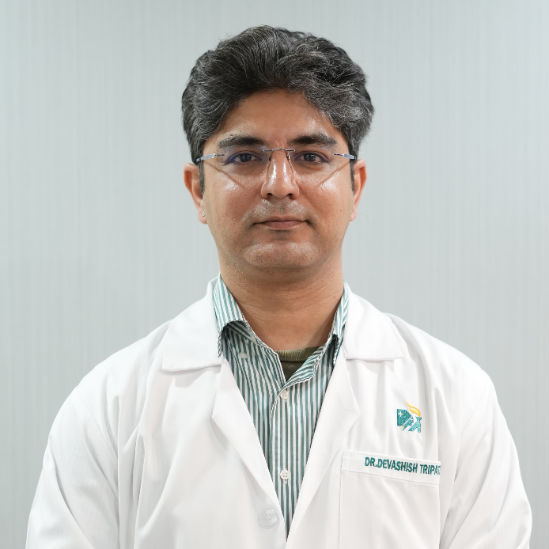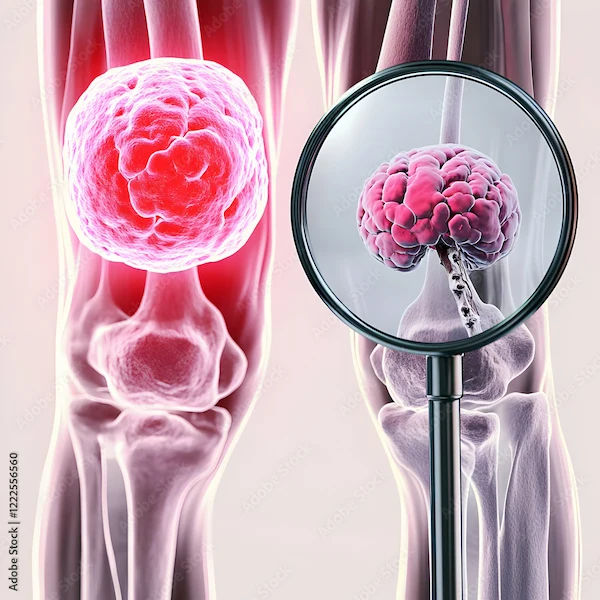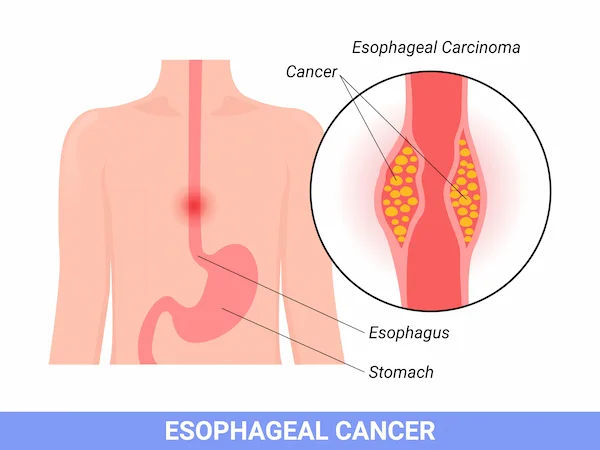Cancer Remission Types: A Detailed Overview
Explore cancer remission types, including complete and partial remission, and their impact on prognosis. Learn about monitoring strategies, relapse prevention, and advancements in treatments for better patient outcomes and long-term disease management.

Written by Dr Sonia Bhatt
Last updated on 3rd Jul, 2025
A cancer remission is a period in which the symptoms and signs of cancer are reduced or disappear completely due to medical treatment. This term refers to the effectiveness of treatment and decreased disease activity. Remission is not the same as a cure because undetectable cancer cells may remain in the body.
Read on for an in-depth understanding of the different types of cancer remission and how they impact the patient's journey.
Types of Cancer Remission
Below are the different types of cancer remission, each representing varying degrees of disease response:
1. Complete Remission
It signifies that all signs and symptoms of cancer have disappeared. Diagnostic confirmation of this outcome is obtained through:
Imaging studies
Physical examinations
Laboratory tests
Patients in complete remission are advised to get examined periodically because small clusters of cancer cells may remain, raising the danger that the cancer may return.
For example, if a patient has been diagnosed with early-stage Hodgkin lymphoma, sometimes it can be cleared with chemotherapy and radiation therapy, but follow-up is key to ensure complete remission.
2. Partial Remission
It indicates there has been a significant decrease in the size of a tumour or the extent of cancer activity. Even if cancer is still present, reduced damage to the body indicates treatment is effective.
Partial remission, in some cases, is merely the next step toward complete remission, with ongoing therapy required to rein in the progression of the disease. For instance, advanced ovarian cancer patients can enter partial remission with surgery and chemotherapy.
Differences Between Cancer Remission Types
The time course of remission and the prognosis associated with it are markedly different in complete and partial remission.
Overall, there is a better prognosis when the remission is complete because the absence of detectable disease leads to a decreased chance of relapse. In contrast, partial remission means cancer is still present, and ongoing treatment and monitoring are required.
Each type of remission can bring significant improvements in quality of life. Those in total remission can start to regain the capacity to partake in daily activities without major restrictions. However, those in partial remission are not entirely stable and may still grapple with the impact of ongoing therapies and residual disease effects.
Emotional well-being might also vary, with full remission typically offering more psychological comfort than partial remission.
Monitoring Cancer During Remission
During remission, regular medical assessments are necessary to pick up warning signs of recurrence at the earliest possible stage. These visits enable healthcare teams to evaluate overall health, manage treatment side effects, and provide recommendations on lifestyle changes that could help achieve long-term remission.
Follow-up is especially important for cancers that have a high rate of recurrence, like breast or colorectal cancer.
Consult Top Oncologist
Diagnostic Tests During Remission
Several methods of diagnosis may be used to follow patients in remission, including imaging methods like CT (Computed Tomography) scan, MRI (Magnetic Resonance Imaging), and blood tests for specific tumour markers. The selection and timing of these tests are personalised to the individual depending on the cancer, treatment history, and risk factors.
Factors Influencing Cancer Remission
The type of cancer and the stage at diagnosis strongly determine the likelihood and durability of remission.
Early stages of cancer are usually treated more successfully and have higher rates of remission. However, late-stage or metastatic cancers are more challenging, and their prognosis is usually poor, with most being unable to achieve a cure.
The treatment choice is a key factor influencing the remission type. For example, multimodal treatment strategies such as surgery in combination with adjuvant modalities such as chemotherapy and/or radiation therapy often result in better antitumor effects.
Potential for Relapse During Cancer Remission
Cancer recurrence can be local at the primary site, regional in adjacent tissues, or metastatic dissemination to distant organs. The estimated long-term relapse rates vary anywhere between 20 and 80 percent.
The risk of recurrence can depend on factors like how aggressive the cancer is, how thoroughly the cancer was treated the first time around, and the patient’s overall health. However, it is crucial to detect any relapse of cancer as early as possible for timely treatment.
Signs that may suggest recurrence might involve chronic fatigue, unintentional weight loss, alterations in appetite, or the return of abnormal growths. Patients should quickly report any concerning symptoms to their healthcare provider.
Living with Cancer Remission
Adjusting to life in remission involves both mental and physical aspects. This phase may be different for each person, and the extent to which they will need psychological and social support should be addressed.
Remission can have multiple layers of emotional impact, with relief, hope, and anxiety about relapse all intermingling.
Psychological counselling and support groups are effective aids that assist people in overcoming their emotions and healthy minds.
Emotional support can be provided by family, friends, healthcare teams, and community organisations.
Being a part of survivor-focused groups helps the survivor to feel motivated; this sense of belonging aids in the process of earlier recovery and building resilience.
Advances in Cancer Treatment and Remission
Recent advancements in cancer treatment have resulted in more patients going into remission with better overall outcomes. At the same time, the development of immune checkpoint inhibitors, monoclonal antibodies, and CAR (Chimeric Antigen Receptor) T-cell therapy has also marked a new direction in targeting cancer cells more precisely.
Scientists are still working to understand these mechanisms and new treatments. Research on cancer vaccines, genomic medicine, and the tumour microenvironment could result in longer-lasting remission and decreased risk of recurrences.
Conclusion
A comprehensive understanding of the types of cancer remission and its challenges is crucial in managing the disease. Holistic management in remission, along with continuing progress in therapeutic approaches and research, highlights the value of a preventative and proactive paradigm for patient health and well-being.
Consult Top Oncologist
Consult Top Oncologist

Dr. Amit Choraria
Surgical Oncologist
18 Years • MBBS, MS (Surgery) Fellow, Surgical Oncology, Tata Medical Center (FSO) Fellow, European Board of Surgery (Surgical Oncology) (FEBS) Fellow, Minimal Access Surgery (FMAS) Fellow, Indian Association of Gastrointestinal Endosurgeons (FIAGES) UICC Fellow, Royal Marsden NHS, London, UK Visiting Scholar, Plastic Reconstructive Surgery, CGMH, Taiwan Fellow, Robotic Surgical Oncology, Vattikuti Foundation, USA
Kolkata
Apollo Multispeciality Hospitals , Kolkata, Kolkata

Dr Sunita Samleti
Oncologist
18 Years • M.D. (Pathology)- TN Medical College, Mumbai University, Mumbai, Mar 2005 M.B.B.S. Grant Medical College, Mumbai University, Mumbai, Oct 1999
Chinagadila
Apollo Hospitals Health City Unit, Chinagadila

Dr. Gopal Kumar
Head, Neck and Thyroid Cancer Surgeon
15 Years • MBBS, MS , FARHNS ( Seoul, South Korea ), FGOLF ( MSKCC, New York )
Delhi
Apollo Hospitals Indraprastha, Delhi
(25+ Patients)

Dr Devashish Tripathi
Radiation Specialist Oncologist
20 Years • MBBS, PLAB, MRCP (UK)- General Medicine, FRCR (Oncology), Certificate of Completion of Training (CCT)- Clinical Oncology
Delhi
Apollo Hospitals Indraprastha, Delhi

Dr. Prashant Chandra Das
Surgical Oncologist
15 Years • MBBS (MKCG Medical college) MCh (Surgical Oncology, Kidwai memorial institute of Oncology, Bangalore) MS (General Surgery, BHU Varanasi) Fellowship in Minimal Access Surgery ( FMAS). ESSO Course On Minimally Invasive Esophagectomy & Gastrectomy (UMC, Utrecht, Netherlands). Trained in Robotic and Laparoscopic Cancer Surgery.
Bhubaneswar
Apollo Hospitals Old Sainik School Road, Bhubaneswar
(25+ Patients)
Consult Top Oncologist

Dr. Amit Choraria
Surgical Oncologist
18 Years • MBBS, MS (Surgery) Fellow, Surgical Oncology, Tata Medical Center (FSO) Fellow, European Board of Surgery (Surgical Oncology) (FEBS) Fellow, Minimal Access Surgery (FMAS) Fellow, Indian Association of Gastrointestinal Endosurgeons (FIAGES) UICC Fellow, Royal Marsden NHS, London, UK Visiting Scholar, Plastic Reconstructive Surgery, CGMH, Taiwan Fellow, Robotic Surgical Oncology, Vattikuti Foundation, USA
Kolkata
Apollo Multispeciality Hospitals , Kolkata, Kolkata

Dr Sunita Samleti
Oncologist
18 Years • M.D. (Pathology)- TN Medical College, Mumbai University, Mumbai, Mar 2005 M.B.B.S. Grant Medical College, Mumbai University, Mumbai, Oct 1999
Chinagadila
Apollo Hospitals Health City Unit, Chinagadila

Dr. Gopal Kumar
Head, Neck and Thyroid Cancer Surgeon
15 Years • MBBS, MS , FARHNS ( Seoul, South Korea ), FGOLF ( MSKCC, New York )
Delhi
Apollo Hospitals Indraprastha, Delhi
(25+ Patients)

Dr Devashish Tripathi
Radiation Specialist Oncologist
20 Years • MBBS, PLAB, MRCP (UK)- General Medicine, FRCR (Oncology), Certificate of Completion of Training (CCT)- Clinical Oncology
Delhi
Apollo Hospitals Indraprastha, Delhi

Dr. Prashant Chandra Das
Surgical Oncologist
15 Years • MBBS (MKCG Medical college) MCh (Surgical Oncology, Kidwai memorial institute of Oncology, Bangalore) MS (General Surgery, BHU Varanasi) Fellowship in Minimal Access Surgery ( FMAS). ESSO Course On Minimally Invasive Esophagectomy & Gastrectomy (UMC, Utrecht, Netherlands). Trained in Robotic and Laparoscopic Cancer Surgery.
Bhubaneswar
Apollo Hospitals Old Sainik School Road, Bhubaneswar
(25+ Patients)



